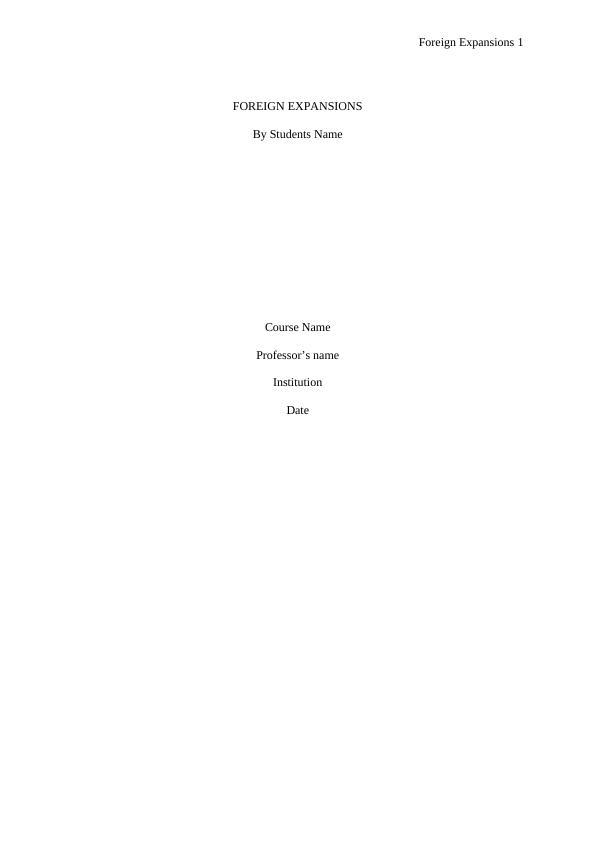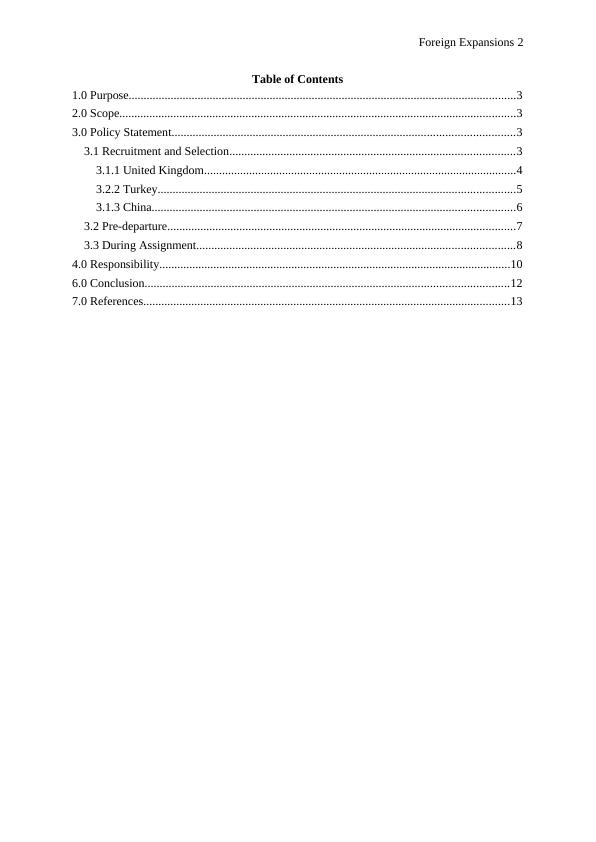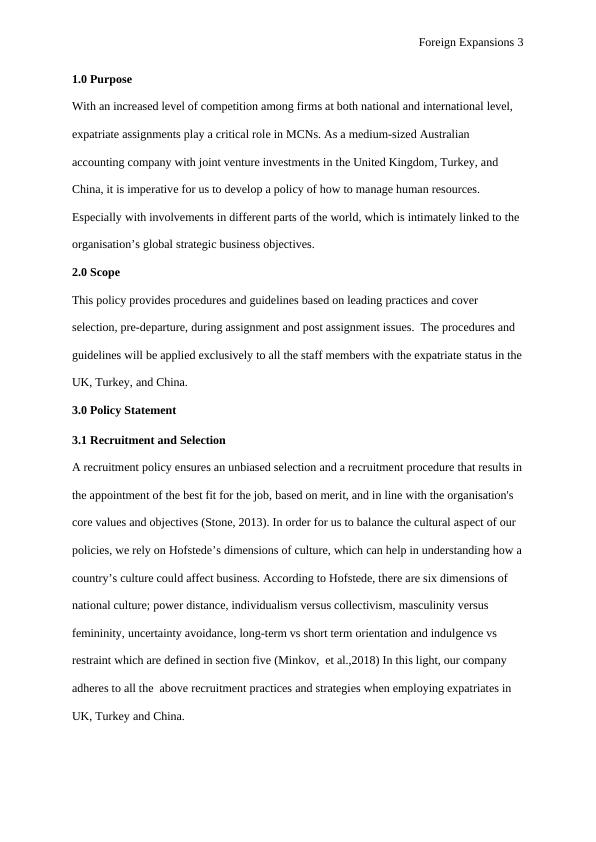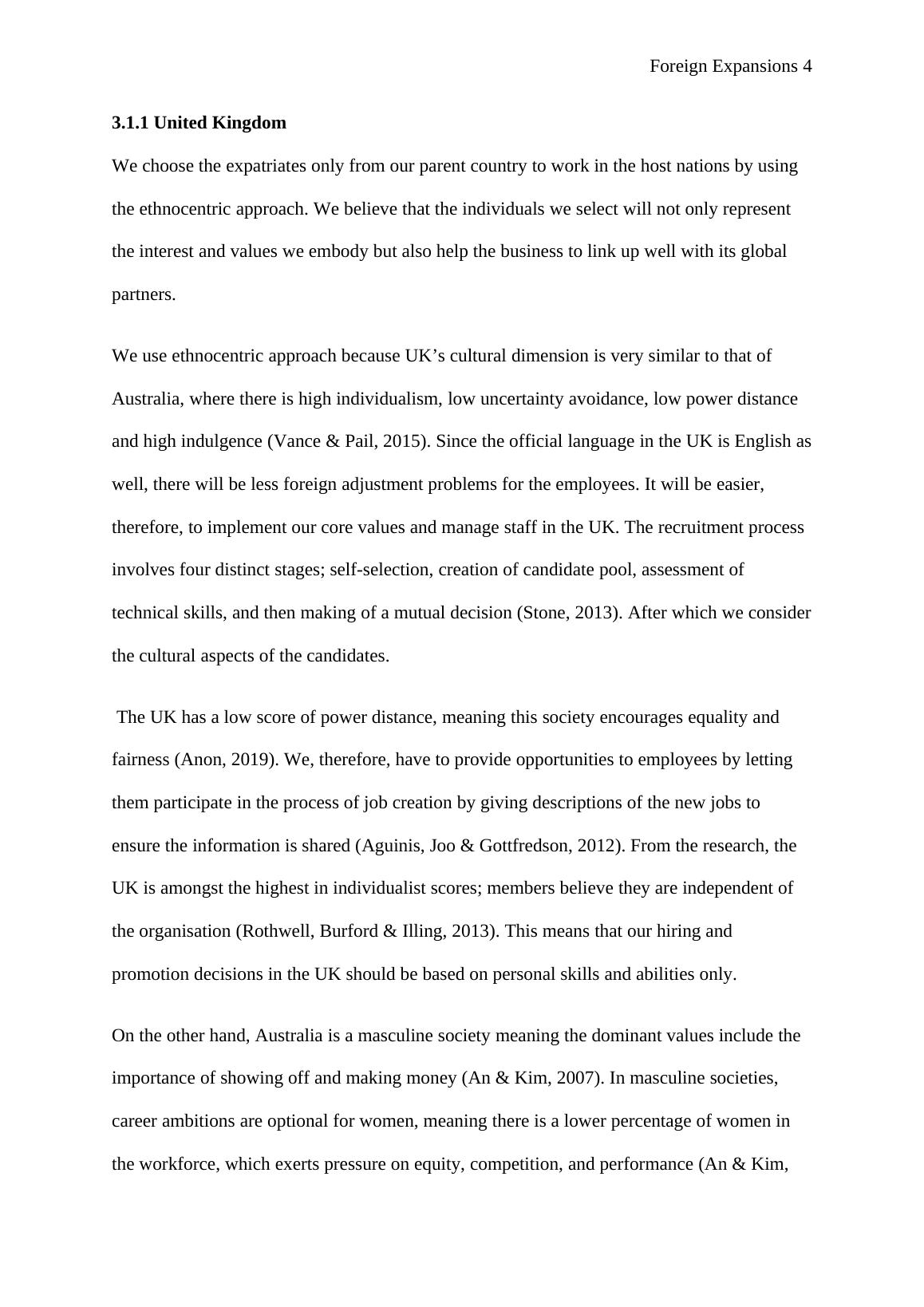Foreign Expansions: Managing Human Resources in International Joint Ventures
Developing a policy for managing human resources in expatriate assignments for a medium-sized Australian accounting company with joint ventures investments in the United Kingdom, Turkey, and China, based on leading practices and Hofstede's dimensions of culture.
15 Pages3204 Words221 Views
Added on 2023-04-04
About This Document
This document provides a comprehensive guide on managing human resources in international joint ventures. It covers recruitment and selection strategies, pre-departure training, and performance management during assignments. The document also explores specific cultural considerations for the United Kingdom, Turkey, and China.
Foreign Expansions: Managing Human Resources in International Joint Ventures
Developing a policy for managing human resources in expatriate assignments for a medium-sized Australian accounting company with joint ventures investments in the United Kingdom, Turkey, and China, based on leading practices and Hofstede's dimensions of culture.
Added on 2023-04-04
ShareRelated Documents
End of preview
Want to access all the pages? Upload your documents or become a member.
Human Resource Management: Benefits and Limitation
|16
|3311
|51
Marketing Plan for Farmhouse Gold Milk in China
|17
|4437
|69




